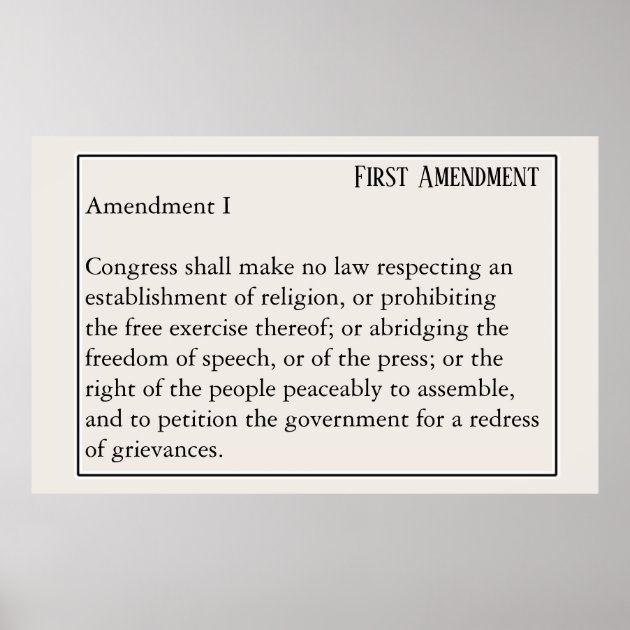


They generally must prove that the statement was made with actual malice, which means that the speaker knew that the statement was false or acted with a reckless disregard for the truth.įree speech protections apply to advertising to a lesser extent, especially when it misleads the public. Public officials bringing defamation cases face a higher bar than private citizens in overcoming First Amendment barriers. In some cases, the speaker may face criminal penalties, although these are unusual. The First Amendment may not shield a speaker from a lawsuit for defamation, which involves a false statement that causes harm to the subject. Pornography involving adults falls outside the First Amendment only if it is extremely explicit, such that it is considered obscene. Child pornography falls outside the First Amendment because it depicts real children engaging in sexual activities, which could encourage child sexual abuse. "Fighting words" are generally limited to personal attacks and do not include statements that may be more generally offensive, such as political slogans, even if the audience is offended and responds with violence. These include threats to commit a crime and "fighting words," which are insults delivered to the target’s face that are likely to cause a physical fight. That said, the government has greater discretion to regulate certain narrowly defined types of speech. They may even cover hate speech, blasphemy, vulgar speech, and videogames that contain what might be seen as an offensive level of violence.Įxceptions to the Ban on Content-Based Restrictions The Supreme Court has applied First Amendment protections generously.
#FIRST AMENDMENT FREEDOM OF SPEECH CLAUSE CITATION FULL#
This would undermine democracy by preventing citizens from getting access to a full spectrum of information and ideas. For example, the government cannot prevent people from stating their views on public issues or criticizing the actions of public officials. Regulations based on the content of speech are generally unconstitutional. "Symbolic speech": non-written and non-spoken forms of expression (wearing armbands or uniforms, displaying or burning flags, etc.) that tend to have a political or social message.For First Amendment purposes, "speech" is defined broadly to cover:


 0 kommentar(er)
0 kommentar(er)
